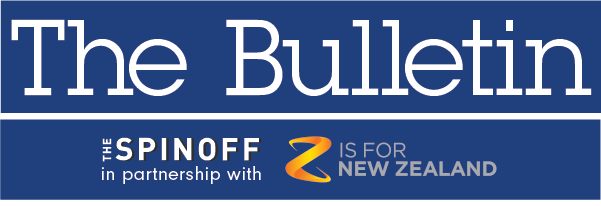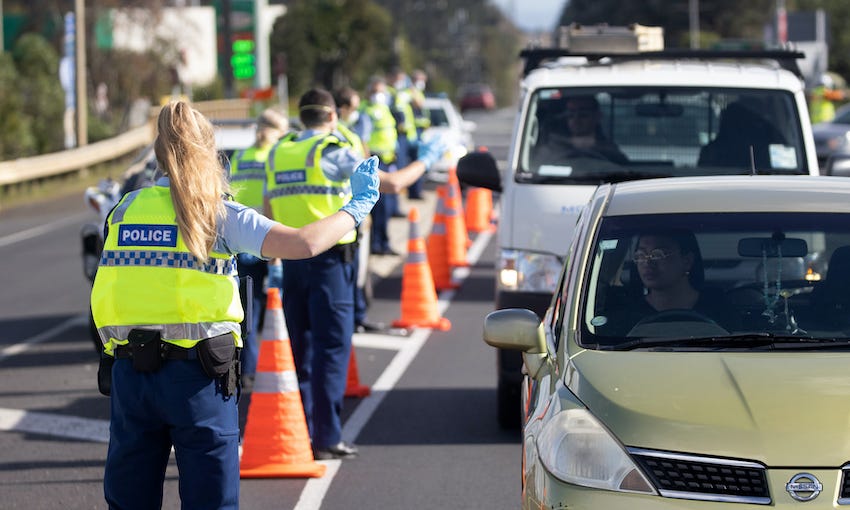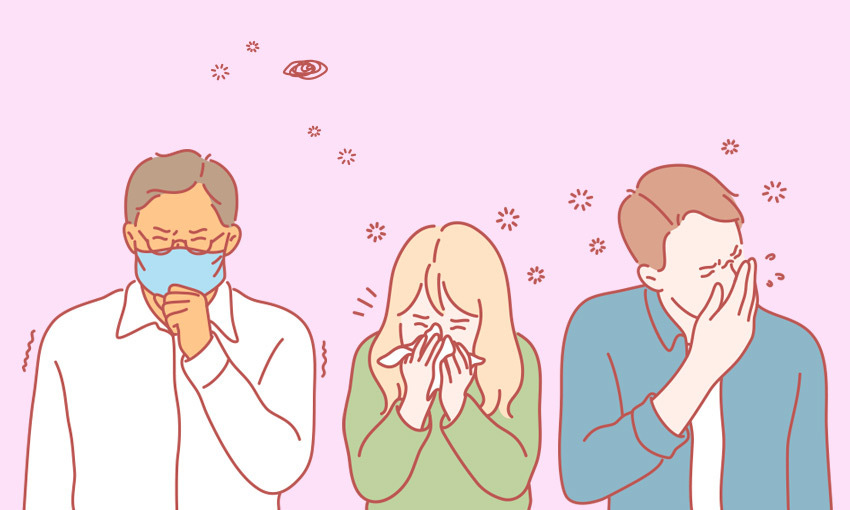Stricter level four considered as cases spread in lockdown
While level four seems to be working, nearly a third of cases detected on Saturday were active in the community while infectious
Good morning and welcome to The Bulletin for Monday, August 30, by Justin Giovannetti. Presented in partnership with Z Energy
In today’s edition: Signs of Covid-19 infections spreading in Auckland’s lockdown, parliament to resume tomorrow and a shake up in the National party.
An Auckland checkpoint during a 2020 Covid-19 outbreak (Brendon O'Hagan/Bloomberg)
We’re getting into the critical numbers of the delta outbreak. Each of the 511 cases detected in New Zealand so far has the potential to be a personal tragedy, however some infections are more threatening to the community than others. Of the 82 cases reported on Saturday, 25 had been active in the community during lockdown while infectious, according to director-general of health Ashley Bloomfield. That’s about 30% of cases.
“They are generating new exposure events and only some of those may become locations of interest in the community. They may be exposure events where they were dropping something to a friend and it was done contactlessly,” Bloomfield told me yesterday. It’s one of a number of warning signs over the weekend.
Infections are now spreading at work during lockdown. While half of all new cases are believed to be a result of transmission within a household, the government now has evidence that essential workers are catching the virus from each other at four work sites. As many as 87 essential workers have now become infected. It’s a finding that could extend how long lockdown lasts. As reported by TVNZ, the prime minister is now considering a level four-plus lockdown, with new restrictions around how essential workers can socialise on the job.
None of the new cases are believed to have broken level four rules.
Another important new number: 0.8. Level four lockdown has reduced the reproduction rate for Covid-19 from about six to 0.8, Bloomfield said yesterday. That means 10 people infected with the virus would now pass it on to eight. Before lockdown, they would have passed it on to 60 people. That R rate still needs to be brought down much lower, Bloomfield added. When the number falls below one, the virus will eventually be stamped out, But at 0.8 it could take some time. It’s a testament to how infectious the delta variant is that what’s been described as the world’s most stringent lockdown has moved us only a smidge below that important line.
Case numbers may finally have peaked. Maybe. They were initially expected to peak last Wednesday or Thursday, according to the government’s modelling but the weekend added over 160 new cases to the national tally. It’s possible the daily number has finally peaked, but it will remain “highish” for days to come, Bloomfield warned. As Stuff reports, the steadily increasing numbers have some uncomfortable parallels to the New South Wales outbreak. Cases spreading through essential workers is how NSW became home to Australia's worst outbreak, along with some very questionable choices by the premier.
What this means for lockdown. The possibility that workers are unknowingly spreading the virus between themselves and infecting their families, creating new chains of transmission, is chilling. The Sydney outbreak didn't just grow to over 1,000 daily cases in a straight line, it grew and stalled and grew again, as the virus found new fissures in an admittedly weaker lockdown to exploit. With New Zealand’s daily tally defying expectations that cases would now be falling, modellers warn that Auckland's lockdown may need to last weeks longer than even last week’s predictions.
Cabinet will be looking at Auckland’s situation today with the prime minister updating the country at 4pm.
As lockdown continues, The Spinoff is doing our utmost to keep you updated on Covid-19 related news through this outbreak. Every dollar our members contribute directly funds our editorial team and is devoted to ensuring we do more. Click here to learn how you can support the team today.
Bluetooth tracing hasn’t been used in lockdown. The Bluetooth function on the Covid-19 contact tracing app has only been used once, in the hours before lockdown for Case A, according to Newsroom. About 40% of the adult population had it turned on at that time and the first alert yielded pings on the phones of 10 users. Despite 510 new cases since then, the ministry of health hasn’t used the function. The government has given two reasons: the “demographics” of the cases don’t use Bluetooth or contact tracers have forgotten to ask new cases for their Bluetooth data. The University of Auckland's Andrew Chen has written a thorough explanation of what's gone wrong.
Parliament resumes Tuesday after opposition rejects virtual alternative. A plan prepared by the Speaker's office for virtual question time was given the thumbs down by the National Party and Act. It would have provided the opposition with fewer questions, but longer answers from the government, according to Stuff. The prime minister and Speaker said they were "disappointed" by the rejection. With both opposition parties calling for the return of an epidemic response committee, it’s unclear what concessions the plan would have made to them.
One group that won’t be returning to the house is the country’s reporters. The Speaker told members of the media over the weekend that he won’t allow them to use the debating chamber’s press gallery until further notice. Access was maintained under level three last year.
Chris Bishop stripped of portfolio over conversion therapy ban. The National party’s Covid-19 spokesperson, he’s still that, has lost his job as shadow house leader in what the NZ Herald reports was punishment for not strongly supporting the party’s vote against a conversion therapy ban. The shadow house leader is a pivotal position for keeping the party organised within parliament itself. It requires attention to excruciating detail and was a perfect fit for a political geek like Bishop. He was replaced by Michael Woodhouse.
A delay to new winter grazing rules has set farmers and environmental groups against each other. Farmers had called “unworkable” new regulations meant to increase animal welfare and environmental protections meant to take effect in May, RNZ has found. The government has pushed back the rules until November 2022 as it works through changes to meet the concerns. Conservation groups say it’s a retreat that means another season of polluting rivers and cows up to their knees in mud.
The final American evacuation from Kabul is underway. The Taliban is nearly ready to take over the country’s main international airport, ending 20 years of American war in Afghanistan. The NZ Herald has a powerfully-written story from the point-of-view of Afghans trying to leave in the chaotic last few days. The whole affair was barely held together, with patchy messages coming through apps and passphrases scrawled on pieces of paper as a country collapsed.
Got some feedback about The Bulletin, or anything in the news?
Get in touch with me at thebulletin@thespinoff.co.nz
Getty Images/Tina Tiller
Right now on The Spinoff: Joel Rindelaub reports on our current understanding of Covid-19 and aerosols and how much has changed. Andrew Geddis conducts a lawyerly discussion about how police are supposed to use the Covid-19 health act after an incident reported over the weekend. Helen Clark says the country needs to do more to support the vulnerable in Afghanistan. Harry Ricketts has an essay on a trip to China in 1977 and what he learned from it. Helen Glenny (paid partnership) writes about a New Zealand tech company using brain waves to try to help people with chronic pain.
For a feature today, the first millennial dictator. I'd never heard of El Salvador's Nayib Bukele before Slate wrote about him, but the 40-year-old self-described "coolest president in the world" is just...something. He’s technically a millennial and his picture will do more to describe him than words ever could. Many politicians use social media to get their message out to the electorate, but I've never seriously considered Jacinda Ardern or Justin Trudeau's selfie game as a real attempt to build an authoritarian personality cult. This guy has:
While Bukele talks like a quintessential populist and behaves like a classic autocrat, he differs from the traditional strongman in one critical dimension: He uses social media to project a youthful and polished personal brand. His sleek and stylish look—common staples include leather jackets, backwards baseball caps, slim-fitting jeans, and aviator shades—stands in stark contrast with our conventional image of a stern strongman leader.
A decision on the site of the next America's Cup is coming. Team New Zealand is looking at moving its defence of the regatta to Ireland, Saudi Arabia or Spain. Or maybe the US. Or it might stay in Auckland. A story from Stuff about the decision suggests Saudi money is what the sport of sailing needs. However, the story skims over what would surely be a public relations disaster created for brand New Zealand if the country sends a premier sporting event to the kingdom.
That's it for The Bulletin. If you want to support the work we do at The Spinoff, please check out our membership programme.







